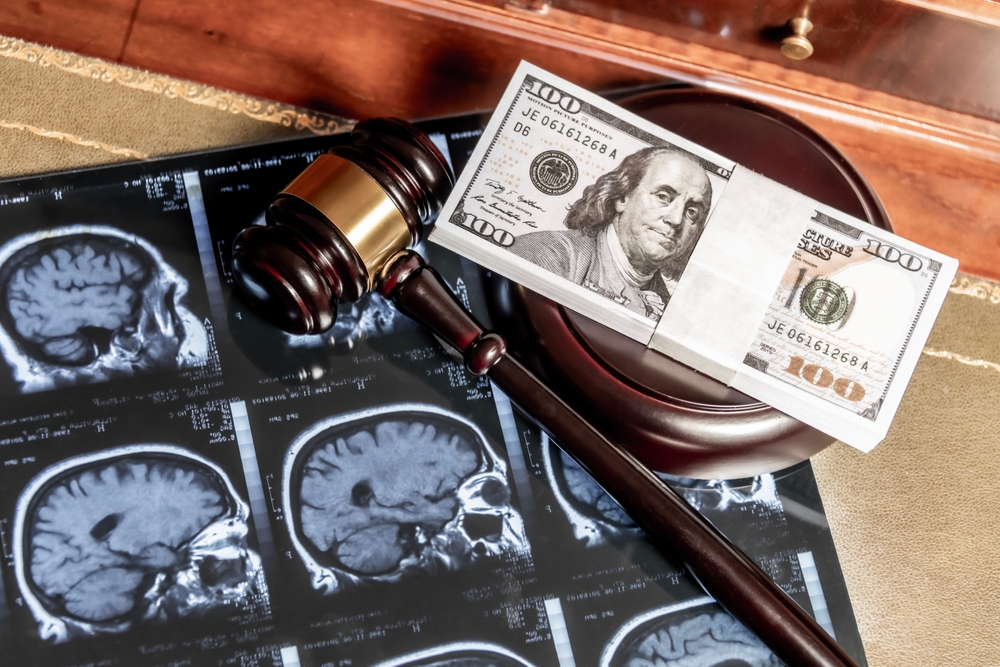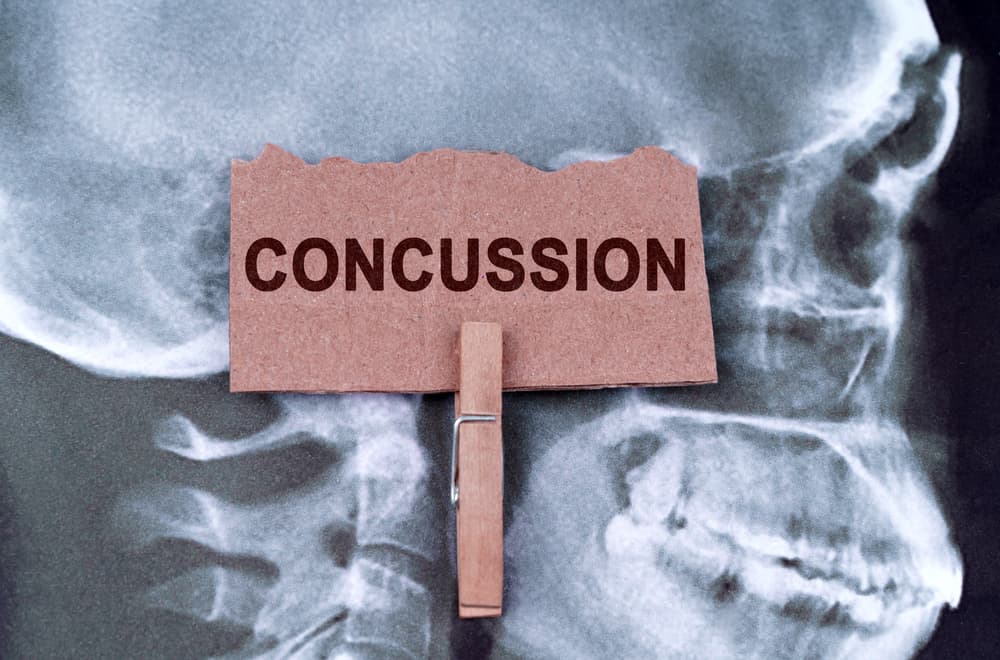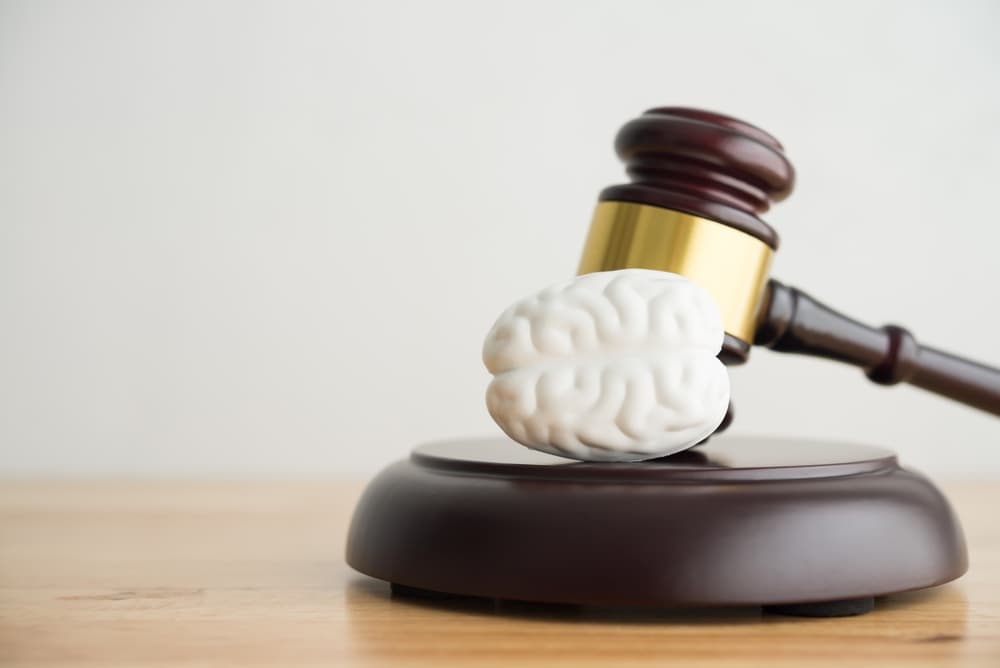Few conditions in life present you with more difficulties than a serious brain injury, which can happen very easily. You rely on your cerebral activity for every action, so experiencing brain damage often means having to rebuild your life.
However, dealing with the consequences of an accidental brain injury doesn't have to mean a lifetime of financial struggles. If someone else was responsible for causing your injury, they should also be responsible for covering your losses under the law.
Seeking compensation for injury-related losses can be difficult under any circumstances, but it can be much more challenging while struggling with the effects of a brain injury. Fortunately, there is professional assistance available.
There are injury attorneys who understand the challenging nature of brain injuries and their effects on your life. They can fight for the compensation you deserve from liable parties. Contact a local brain injury lawyer today for a free consultation.
Schedule A Consultation Today!
Overview of Traumatic Brain Injuries

Traumatic brain injuries (TBIs) are a serious and complex medical condition that can have long-lasting effects on an individual's life. These injuries occur when a sudden external force, such as a blow or jolt to the head, disrupts the brain's normal functioning.
Dealing with a brain injury can be a life-altering experience. While each injury is different, there are common effects that often occur due to such an injury.
One common effect is cognitive impairment, affecting memory, attention span, and the ability to process information. It can make simple tasks feel overwhelming and impact the ability to perform well at work or school.
Another common effect of brain injuries is emotional and behavioral changes. Many individuals may experience mood swings, irritability, and difficulty controlling their emotions. This can have a significant impact on personal relationships and day-to-day interactions.
Physical effects are also commonly seen in individuals with brain injuries. These can range from headaches and dizziness to difficulties with balance and coordination. In more severe cases, individuals may have difficulty with speech and motor skills, impacting their ability to communicate and perform basic tasks.
If you suffered a brain injury and believe someone else was to blame, never wait to seek the help of an experienced personal injury attorney. They can handle the legal process for you and seek the compensation you deserve. A skilled lawyer will understand how brain injury cases work and provide care and support on your path to financial recovery.
There are Many Different Types of Brain Injuries
Brain injuries come in a wide range of types and severity. Each type can have different symptoms and require different levels of medical attention. Understanding these different types can help you recognize the signs, seek appropriate treatment, and understand your legal damages.
Concussions

One of the most well-known types of brain injuries is a concussion. Concussions occur when there is a sudden jolt or blow to the head, causing the brain to move rapidly back and forth. This movement can damage brain cells and lead to various symptoms, such as headaches, dizziness, and memory problems.
While concussions were historically considered “mild” compared to other brain injuries, this attitude has changed, and you must never underestimate this injury. There is nothing “mild” about any degree of brain injury, and research has shown concussions to have severe and lasting effects on victims.
Multiple concussions can be especially concerning, as they can put you on a path to early-onset dementia, Alzheimer’s disease, Parkinson’s disease, and more. Some people experience persistent post-concussive syndrome, which means the symptoms of a concussion do not heal with treatment or time. This can last for months or even years, causing serious problems for victims.
Anyone who hits their head or experiences a sharp jolt should immediately see a medical professional. Signs of a concussion might not appear right away, but they can become apparent and worsen over hours or days. Getting a quick diagnosis through medical testing is the best way to protect your health and begin treatment. Further, a prompt diagnosis creates records of your accident-related brain injury.
Severe TBIs
While concussions were once considered “mild,” severe traumatic brain injuries were at the other end of the spectrum. These injuries typically occur from a powerful impact to the head, such as a car accident or a fall from a significant height. The impact results in significant damage to brain tissue, usually causing immediate and significant disruption in bodily functioning.
In such cases, the brain injury can lead to an extended loss of consciousness or a coma. Comas are a state of prolonged unconsciousness and can vary in duration. Some people never wake up from a coma, while others might remain trapped in a vegetative state. Some victims of severe TBIs wake up and have to relearn nearly everything about life, including memories and how to complete basic tasks.
This type of brain injury requires emergency trauma care and ongoing care to manage the patient's condition and optimize their recovery. Patients often require extended hospitalization and then long-term rehabilitation. Victims of severe TBIs regularly have permanent impairments, whether they are cognitive, physical, or behavioral.
Penetrating Head Injury

Another type of brain injury is a penetrating head injury. This occurs when an object, such as a bullet or a fragment of a shattered skull, penetrates the brain tissue. Penetrating head injuries often result in visible wounds and can cause severe damage to the brain. The treatment for this type of injury depends on the location and extent of the damage but may involve surgery to remove the foreign object and repair the brain tissue.
It is usually obvious that you have a penetrating head injury. One instance when it might not be apparent is when a fragment of a fractured skull cuts into the brain tissue. Always seek medical care so professionals can conduct imaging tests to determine whether you need invasive medical treatment to repair a penetrating head injury.
Diffuse Axonal Injury
Diffuse axonal injuries are another type of brain injury that can occur from severe trauma, such as a car accident or a sports-related incident. These injuries involve the tearing of nerve fibers in the brain.
Diffuse axonal injuries can result in widespread damage to brain functions and can lead to long-term cognitive, physical, and emotional impairments. Treatment for diffuse axonal injuries focuses on managing symptoms and supporting the patient's recovery through rehabilitation therapies.
Anoxic Brain Injury
Anoxic brain injury is in contrast to traumatic brain injuries because this condition does not result from trauma or impacts. Anoxic brain damage occurs when the brain is deprived of oxygen for an extended period. This can happen due to drowning, suffocation, or cardiac arrest. Without oxygen, brain cells can quickly begin to die.
Anoxic brain injury can lead to a range of cognitive and physical impairments, depending on the duration and severity of the oxygen deprivation. Treatment may involve immediate resuscitation measures to restore oxygen supply and ongoing therapies to support brain function.
Bleeding and Pressure
Hemorrhage refers to bleeding that occurs in or around the brain. Intracranial pressure can increase due to the accumulation of blood, causing potential damage to the brain tissue. Hemorrhages can result from various causes, including trauma, aneurysms, or underlying medical conditions.
Immediate medical attention is essential to diagnose the hemorrhage and reduce the pressure on the brain through medical interventions or surgeries. Surgeons might need to drain fluid from inside the skull and insert devices to monitor intracranial pressure.
There are various types of brain injuries, each with its own set of symptoms and severity levels. Whether you might have a concussion or are diagnosed with a severe traumatic brain injury, it helps to recognize the signs of a brain injury and seek appropriate medical attention.
Brain injuries can have long-lasting effects, and timely intervention can make a significant difference in the recovery process. If you or your loved ones experience any signs of a brain injury, reach out to a healthcare professional. Then, consult a brain injury attorney who can assess your legal rights.
Remember, prompt action can potentially improve outcomes and ensure the best possible care for those affected by brain injuries. However, treatment can be costly, so if you are entitled to compensation, you want an experienced brain injury lawyer working for you.
Causes of Traumatic Brain Injury

More than 214,000 people required hospitalization for brain injuries in a recent year, and this does not account for those who received treatment in the emergency room or urgent care and were discharged without hospital admission. Data indicates that millions of Americans live with the effects of brain injuries at any given time, causing various challenges in their everyday lives.
Knowing the cause of a brain injury is important, as the cause can dictate your legal rights in the wake of an accidental injury. Your brain injury lawyer can investigate what happened and identify whether another party should be liable for your losses.
The following are some examples of common incidents that lead to brain injuries and legal claims.
Vehicle Accidents
Vehicle collisions lead to the majority of TBI cases. These crashes can take many forms, such as:
- Car accidents
- Motorcycle accidents
- Truck accidents
- Pedestrian accidents
- Bicycle accidents
- E-scooter accidents
- Other electric vehicle accidents
- Vehicle passenger accidents
If you or a loved one has a TBI because of another driver's negligence, you can generally claim compensation from the at-fault driver’s insurance company. Proving the extent of your injury-related damages can be difficult, however, so never pursue an auto insurance injury claim alone.
Falls and Property-Related Accidents
Falls and property-related accidents are also leading causes of brain injuries, particularly among older adults and young children. Slip and fall accidents, tripping hazards, or falling from heights can result in head trauma and severe brain damage. These accidents can happen anywhere, from slippery floors in grocery stores to poorly maintained sidewalks and stairs.
Even if you stay aware of your surroundings and take necessary precautions to prevent falls, you can suffer injuries due to the negligence of businesses or property owners. If you suffered a brain injury due to a fall or property-related accident, consult an attorney who handles these types of personal injury cases. They can help determine if negligence played a role in your injury and, if so, seek compensation for your damages.
Defective Products
Another cause of brain injuries is defective products. From faulty car parts to malfunctioning safety equipment, defective products can lead to catastrophic accidents, resulting in traumatic brain injuries.
Manufacturers have a responsibility to produce safe and reliable products. When they fail to meet this obligation, innocent consumers can suffer devastating consequences. If you believe a defective product has caused your brain injury, consult an experienced attorney who can investigate the circumstances surrounding your case and hold the responsible parties accountable.
Learn How a Brain Injury Lawyer Can Support You

If you or a loved one has suffered a brain injury, the recovery and legal processes that follow can be overwhelming. That's where a brain injury lawyer comes in. These legal professionals know the law and can provide you with the support and guidance you need during this challenging time.
One of the key ways a brain injury lawyer can assist you is by determining the liability for your injury. They will thoroughly investigate the circumstances surrounding your case, gathering evidence and interviewing witnesses to establish who is responsible.
Additionally, a brain injury lawyer will advocate for your rights throughout the legal process. They will identify all the ways your injury affects your life, finances, and otherwise. They will represent your losses to insurance companies and fight for full compensation for your extensive losses from your brain injury.
Don't face this challenging situation alone; let a brain injury lawyer support you every step of the way. Consultations are free, and you can learn about your options for seeking potential compensation. While money will not take your injury away, it can provide valuable financial support as you face your future with a brain injury.
Time is short, schedule a no-cost case evaluation now.
